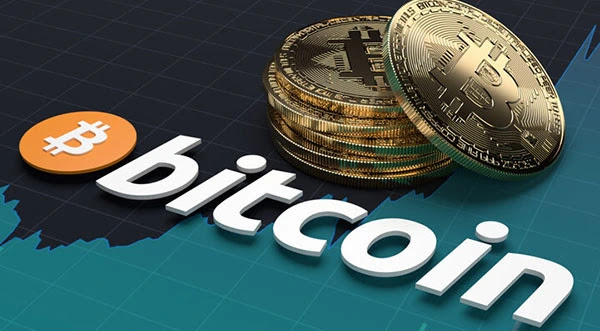What is Bitcoin?
Bitcoin as first and most well-known cryptocurrency is a decentralized digital currency that uses cryptography for security and is not controlled by any government or financial institution. It was created in 2009 by an unknown individual or group using the pseudonym Satoshi Nakamoto.
How Does Bitcoin Work?
Bitcoin works using a technology called blockchain, which is a decentralized ledger of all transactions that have ever taken place on the network. When a transaction is made, it is broadcasted to the network and verified by network nodes through the use of complex algorithms. Once a transaction is verified, it is added to the blockchain and becomes permanent.
This decentralized nature of the blockchain means that there is no central authority controlling the flow of bitcoins, making it resistant to censorship and fraud.
How Do You Acquire Bitcoins?
There are several ways to acquire bitcoins. One way is to buy them on a cryptocurrency exchange, such as Coinbase or Bitstamp. You can also earn bitcoins through a process called "mining," which involves using powerful computers to solve complex mathematical problems in order to validate transactions on the network.
What Can You Do With Bitcoins?
Bitcoins can be used to purchase goods and services online, as well as in some physical stores that accept them. They can also be traded for traditional currencies, such as the US dollar, or used to purchase other cryptocurrencies.
Advantages and Disadvantages of Using Bitcoin
There are several advantages to using bitcoin as a means of payment. Transactions are fast and secure, and fees are generally lower compared to traditional payment methods. Additionally, since bitcoins are decentralized, there is no risk of inflation as there is no central authority issuing new units of the currency.
However, there are also some drawbacks to using bitcoin. Its value is highly volatile, and it is not yet widely accepted as a form of payment. Additionally, the decentralized nature of the currency means that it is not backed by any physical asset or government, which may make some users hesitant to trust it.
History of Bitcoin
The idea for bitcoin was first proposed in a white paper published in 2008 by Satoshi Nakamoto, who remains anonymous to this day. The first block of the bitcoin blockchain, known as the Genesis Block, was mined in 2009. In the years following its inception, bitcoin gained a small but dedicated following, and its value began to rise as more and more people became aware of it.
As bitcoin's popularity grew, it also attracted the attention of regulators and governments around the world. In 2013, the US Internal Revenue Service (IRS) issued guidance stating that bitcoin would be treated as property for tax purposes, rather than as a currency. In 2017, the US Securities and Exchange Commission (SEC) rejected a proposal for a bitcoin-based exchange-traded fund (ETF), citing concerns about market manipulation and investor protection. Despite these regulatory hurdles, bitcoin's value continued to rise, reaching an all-time high of nearly $64,000 in April 2021.
Controversies Surrounding Bitcoin
Bitcoin has been involved in several controversies throughout its history. One of the most well-known is the collapse of Mt. Gox, a major bitcoin exchange based in Japan, in 2014. The exchange filed for bankruptcy after 850,000 bitcoins, worth around $450 million at the time, were stolen. The incident led to increased scrutiny of bitcoin exchanges and the development of new security measures to protect against future thefts.
Another controversy surrounding bitcoin is its association with illegal activities, such as drug trafficking and money laundering. While it is true that bitcoin has been used for these purposes, it is also important to note that it is not the only currency that has been used for illegal activities, and that traditional financial systems have also been used for such purposes. Additionally, the use of bitcoin for illegal activities is a small fraction of all bitcoin transactions, and the use of bitcoin for legal purposes is growing steadily.
Future of Bitcoin
It is difficult to predict the future of bitcoin, as it is a highly volatile and unpredictable asset. Some experts believe that it has the potential to become a widely accepted and mainstream form of currency, while others are more skeptical and believe that its value is unsustainable. Ultimately, the future of bitcoin will depend on a variety of factors, including its adoption by merchants, its regulatory environment, and its ability to withstand security threats.
Despite the uncertainty surrounding its future, bitcoin has already had a significant impact on the financial industry and has sparked a wider conversation about the role of decentralized technologies in the economy. Whether or not it becomes a mainstream currency, it is clear that bitcoin has made a lasting mark on the world of finance and technology.
Conclusion
Overall, bitcoin is a revolutionary technology that has the potential to change the way we think about and use money. While it is still in its early stages and there are risks involved, it has already gained a significant following and is worth considering as a potential investment or means of payment.








0 Comments